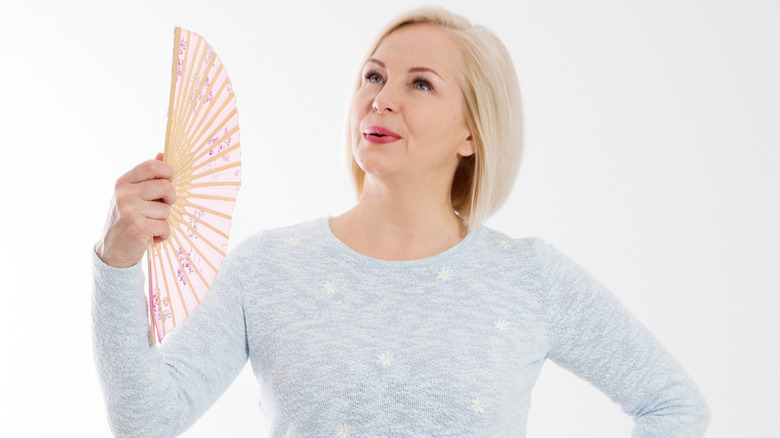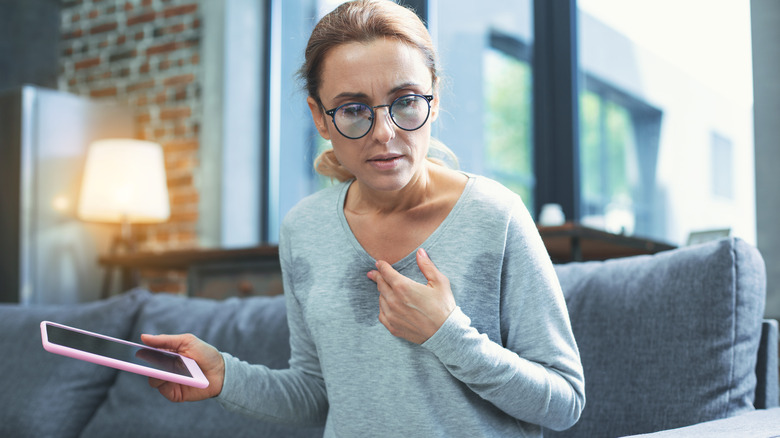The First Thing You Should Do When You Get A Hot Flash
Hot flashes are sudden bursts of heat and sweating that often cause a red face and neck. You may also have an increased heartbeat, anxiety, and — once it's over — chills. According to the Journal of Mid-Life Health, more than 80% of people in menopause and 55% in transition to menopause have hot flashes. They typically last one to five minutes. WebMD adds that hot flashes can also happen at night. These are called night sweats and can wake you up, disrupting your sleep. Hot flashes usually last about seven years, so good news — they'll go away eventually.
They happen when your body senses that it's hot and makes blood vessels near the surface of your skin widen, causing you to sweat. Hot flashes usually start out gradually, worsen during menopause, and are the most bothersome right before they stop (via the Journal of Mid-Life Health). According to the Mayo Clinic, the most common cause is hormonal changes before, during, and after menopause. Other hot flash causes are medications, thyroid problems, and certain cancers and cancer treatments.
Here's the first thing you should do when you get a hot flash and other ways to make them more bearable.
First thing to do when you get a hot flash
When you get a hot flash, the first thing you should do is stay cool, physically and mentally. WebMD recommends using a fan to help you cool off during your hot flash — carry a portable one with you to use it wherever you are. While you're enjoying the fan, practice deep breathing for about six to eight breaths per minute. Healthline adds to dress in layers so you can remove a layer when you start to feel warm. You can also drink some ice water to feel some instant relief.
Preventing hot flashes can be effective by avoiding triggers and being prepared. An excellent way to determine your triggers is by keeping a journal. Write down what you were doing and wearing, what you ate, and how you were feeling when you had a hot flash. After a couple weeks, you should notice a pattern. Hot flash triggers include smoking and exposure to secondhand smoke, drinking alcohol or caffeine, eating spicy foods, wearing tight clothing, and feeling anxious or stressed. You can prevent hot flashes by avoiding triggers.
Talk to your doctor if your hot flashes are severe or make everyday tasks difficult to complete. Your doctor can help you find a medication to treat hot flashes.


